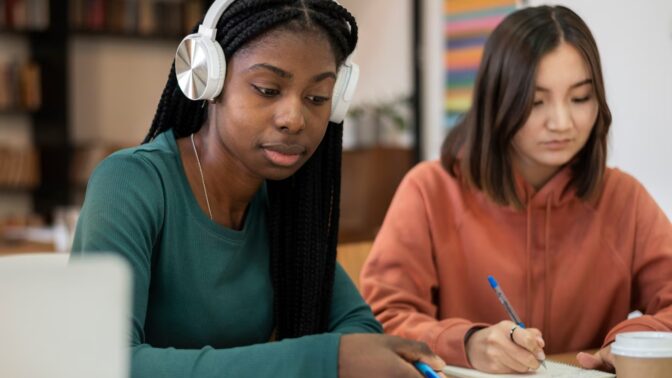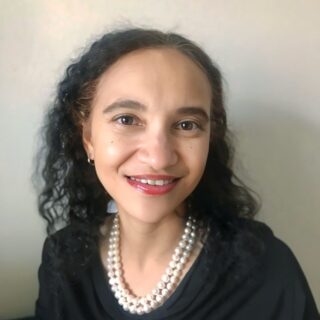IB TOK: Understanding the Areas of Knowledge

What comes to mind when you hear the phrase “Theory of Knowledge” or “TOK Areas of Knowledge”? In the IB Diploma Programme (DP), TOK invites students to dive into this thought-provoking question.
As a central part of the DP core, TOK areas of knowledge challenges students to think critically about how we come to know what we know and opens the door to exploring knowledge from fresh, unexpected perspectives. This article explains each area clearly and shows how students can evaluate, apply, and seek support to master their IB TOK AOKs.
Need help with IB TOK?
What are the Areas of Knowledge in IB TOK?
The Theory of Knowledge (TOK) course in the IB Diploma Programme challenges students to explore how knowledge is constructed, evaluated, and applied. Central to this exploration are the Areas of Knowledge (AOKs), which represent different disciplines and systems of thought, each with its own methods, assumptions, and perspectives.
But what are the Areas of Knowledge in TOK, and why do they matter? This guide breaks down each AOK to help you understand their unique roles in shaping knowledge.
Whether you’re preparing for your TOK essay or aiming to connect classroom learning to real-world issues, this article will help you apply the IB Areas of Knowledge with confidence.
At TutorsPlus, we are proud to have a team of outstanding IB tutors who can support you every step of the way, ensuring you grasp these complex ideas and succeed in your TOK journey.
Areas of Knowledge: Disciplines for Understanding the World
Areas of Knowledge (AOKs) in TOK refer to the categories or disciplines through which knowledge is structured and interpreted. Each AOK in TOK comes with its assumptions, methods of inquiry, and validation processes.
In summary, the IB TOK areas of knowledge include:
Natural Sciences
The Natural Sciences encompass biology, chemistry, physics, and earth sciences. This TOK area of knowledge relies heavily on the scientific method, which includes observation, hypothesis formulation, experimentation, and theory testing. Knowledge produced here aims to be objective, measurable, and replicable.
While science is often seen as objective, TOK students explore how it is shaped by social, cultural, and ethical factors. The development of nuclear energy illustrates this duality—offering a low-carbon solution to climate change while also enabling the creation of destructive weapons.
The bombings of Hiroshima and Nagasaki raise profound ethical questions about scientific responsibility and the consequences of innovation. This example shows that even in the Natural Sciences, knowledge is deeply intertwined with ethical considerations.
TOK also encourages students to question the certainty of scientific theories. As new evidence emerges, theories can be revised or replaced, prompting discussions about the reliability, limits, and moral responsibilities of scientific knowledge.
Key TOK questions in this area include:
- Is prediction the primary purpose of scientific knowledge?
- Can moral disagreements be resolved through scientific evidence?
While the natural sciences offer structure and reliability, students must also reflect on ethical concerns and human bias in experimentation and communication.
Human Sciences
The Human Sciences AOK includes psychology, economics, sociology, anthropology, and political science. Unlike the natural sciences, this area of knowledge deals with human behavior and society, making it inherently more subjective. Methods of inquiry vary widely, ranging from controlled experiments to interviews and case studies.

Students are encouraged to analyze how culture, values, and cognitive bias influence research outcomes in this area. For example, in psychology, results can vary dramatically depending on cultural context or the framing of questions.
This highlights the importance of methodological awareness and ethical sensitivity in human sciences research. While striving for objectivity, human sciences often reflect the fluid and complex nature of human experience.
TOK questions here explore:
- To what extent are human science methods truly scientific?
- Can cultural perspectives shape the outcome of research?
This is ideal for students interested in analyzing human behavior from different lenses.
History
History in TOK areas of knowledge explores how we understand and interpret past events. It relies on evidence such as documents, artifacts, and testimony rather than direct observation. Historians must consider the subjectivity of sources and the biases of eyewitnesses and scholars.
A key question in this area is whether historical truth is ever fully knowable. For example, multiple accounts of the same event may conflict due to differing perspectives or agendas. Students learn to evaluate the reliability of sources and consider how present-day values can color interpretations of the past.
The study of history in TOK highlights the importance of perspective, context, and the constructed nature of knowledge.
TOK key questions include:
- Are historians’ accounts necessarily subjective?
- Can we judge past actions using today’s moral standards?
This IB area of knowledge requires students to evaluate sources critically and consider multiple perspectives.
Arts
The Arts offer a radically different kind of area of knowledge. They include visual arts, music, theatre, dance, film, and literature. Unlike scientific disciplines, the arts are deeply personal, interpretative, and emotional, with knowledge often emerging from the creative process itself.
The boundaries of knowledge are fluid in this particular AOK. Students consider how meaning is conveyed through metaphor, symbolism, and aesthetic choices. One central question is whether a work of art can contain knowledge that even the artist is unaware of. TOK encourages students to question how personal and shared knowledge intersect in the arts and how emotions and creativity influence understanding.
Important TOK inquiries include:
- Can a work of art have a meaning the artist did not intend?
- Do ethical constraints apply to the creation or consumption of art?
This encourages creative thinking and allows students to explore different emotional and cultural responses.
Mathematics
Mathematics is often seen as the most logical and objective area of knowledge in TOK. It begins with axioms and builds knowledge through deductive reasoning, often resulting in elegant and universally accepted conclusions. Yet, beneath this logical surface lies a world of creativity and philosophical debate.
Students examine how mathematics functions as a language and a tool for other AOKs. For example, mathematical models are widely used in the natural and human sciences to represent and predict phenomena.
However, students are also asked to consider how mathematical truths are constructed and whether they are truly universal or culturally influenced. TOK discussions in this AOK challenge assumptions about certainty and objectivity.
TOK areas of knowledge questions include:
- If math is created by humans, can its truths still be considered universal?
- What role do imagination and creativity play in mathematical discovery?
Despite its rigid structure, mathematics requires immense creativity in its development and application.
Need help with this subject?
100 % of tutors are certified teachers and examiners
Evaluation of TOK Areas of Knowledge IB
There are two assessments for TOK, the 1600 word essay of your choice from the prescribed titles which counts for 2/3 of the final marks and the exhibition which represents 1/3.
When analysing TOK areas of knowledge, students are encouraged to apply the TOK Knowledge Framework. This framework helps students understand the nuances of each AOK through four core dimensions:
- Scope – What does this AOK cover, and what are its limitations?
- Perspectives – How do different cultures, individuals, or historical contexts affect the knowledge produced?
- Methods and Tools – What methodologies and resources are used to generate knowledge?
- Ethics – What are the moral implications of producing or applying knowledge in this area?
Each AOK offers unique insights based on how its scope, methods, perspectives, and ethical implications interact. While subjects like mathematics may appear neutral, their real-world applications—such as in AI or finance—can raise significant moral concerns. Using the Knowledge Framework helps students study these complexities and understand how knowledge is produced and communicated across different disciplines.

AOKs are assessed in both the TOK essay and exhibition. In the essay, students analyse at least two AOKs in response to a prescribed title, comparing how knowledge is constructed and justified. In the exhibition, students connect TOK concepts to real-world objects, often linking them to specific AOKs. Demonstrating this understanding adds depth and shows the ability to apply TOK thinking beyond theory.
Real-World Challenges for IB Areas of Knowledge
In the IB Theory of Knowledge (TOK) course, it’s not enough to understand the characteristics of each Area of Knowledge (AOK). You also need to critically explore how real-world challenges affect the production, interpretation, and reliability of knowledge. Below, we break down some major challenges associated with each AOK to help you develop nuanced perspectives and stronger TOK essay and exhibition
History
Challenge: Interpreting biased or incomplete sources
Historical narratives often reflect political or cultural agendas. For example, colonial maps and cartoons may reinforce dominant ideologies rather than objective facts.
TOK Link: Can we ever access a truly objective past? Should historians make ethical judgments?
Human Sciences
Challenge: Balancing objectivity with ethical responsibility
Human behavior is hard to predict and ethically risky to study. The observer effect, personal bias, and cultural context all influence research outcomes.
TOK Link: Can researchers study humans without affecting them? How do ethics limit knowledge creation?
Natural Sciences
Challenge: Public trust and scientific limits
Even rigorous science is shaped by funding, politics, and uncertainty. Breakthroughs like CRISPR raise both excitement and concern about unintended consequences.
TOK Link: How can non-scientists judge science? Should science be value-free?
Mathematics
Challenge: Misuse of statistics in real life
Mathematics is abstract and precise, yet it can be distorted through selective data or misleading visuals. People often trust numbers without questioning their context.
TOK Link: Can numbers lie? Does math deserve its reputation for neutrality?
The Arts
Challenge: Ethics of expression and interpretation
Art can provoke, inspire, or offend—raising questions about freedom and responsibility. The meaning of art is also shaped by who creates it and how we view it.
TOK Link: Should we separate the art from the artist? Can art be ethically wrong?
When working on your TOK essay or exhibition, start by identifying a real-world issue connected to your chosen Area of Knowledge. Then, ask yourself what knowledge question this issue raises. This process of linking real situations to deeper questions is what transforms theory into meaningful TOK exploration.
How Can a Tutor Assist with Each AOK in TOK
Mastering TOK AOKs can be challenging, especially when integrating them into an essay or presentation. A skilled TOK tutor can provide personalized support to help students navigate each area of knowledge in TOK with clarity and confidence.
Here’s how a tutor can assist:
- Clarification: Break down complex AOK concepts into digestible explanations with real-world examples. A TOK tutor can simplify abstract theories and demonstrate how they apply to everyday situations, making them easier to understand.
- Essay Support: Help students identify relevant AOKs for their prescribed titles and build strong, evidence-based arguments. A tutor can assist in crafting a clear thesis, structuring coherent arguments, and selecting examples that directly support the essay’s central claims.
- Comparative Analysis: Guide students in comparing and contrasting different AOKs using the Knowledge Framework. Tutors help students analyze scope, methodology, perspectives, and ethics within each AOK to create nuanced comparisons.
- Critical Feedback: Provide detailed critiques on essay drafts, highlighting areas for improvement and alignment with IB criteria. Tutors can pinpoint gaps in reasoning, vague statements, or underdeveloped arguments while offering practical suggestions for refinement.
- Creative Integration: Encourage using diverse sources—such as interviews, case studies, or current events—to strengthen TOK arguments. Tutors inspire students to connect their knowledge with personal experiences or global issues, enriching their work with original insight.
Summary
Mastering the Areas of Knowledge (AOKs) in IB Theory of Knowledge (TOK) is essential for success in both the exhibition and essay, as well as for developing critical thinking, ethical awareness, and a deeper understanding of knowledge across disciplines. Since TOK plays a key role in your final IB grade, targeted preparation matters.
Whether you’re navigating the easiest and hardest AOKs or need help refining your ideas, a TOK tutor can provide the clarity and structure you need. At TutorsPlus, our TOK tutoring is tailored to your learning style and goals—so if you’re feeling stuck or aiming high, contact us at 022 731 8148 or and take the next step toward success.
By Sara Lloyd
Sara has been an education consultant for TutorsPlus for 15 years, and is an expert on international IB education. She is also a parent of two lively children.















